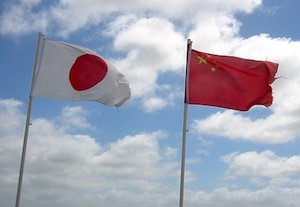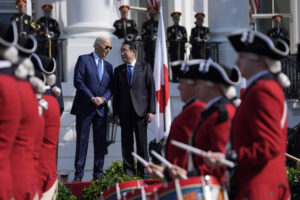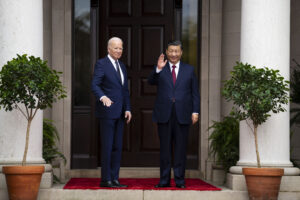China and Japan in Drone Dispute
Although the U.S. was a pioneer in unmanned flight technology, it’s worth remembering that many other major countries want to develop similar programs for their own interests. A dispute over islands in the East China Sea is catalyzing such an arms race between China and Japan.
Although the U.S. was a pioneer in unmanned flight technology, it’s worth remembering that many other major countries want to develop similar programs for their own interests. A dispute over islands in the East China Sea is catalyzing such an arms race between China and Japan.
Chinese surveillance planes and Japanese fighter jets have played games of airborne tag in recent weeks near the islands, which China calls the Diaoyu and Japan the Senkaku.
Japan’s recently elected conservative administration is eager to flex its muscles on the world stage. Soon after becoming prime minister, Shinzo Abe ordered a review of his country’s defense program, intended apparently to speed up the acquisition of as many as three U.S. drones.
Experts warn the possibility of hostile encounters between drones in the region’s airspace is “very high.”
— Posted by Alexander Reed Kelly.
Your support matters…The Guardian:
Under Abe, a nationalist who wants a bigger international role for the armed forces, Japan is expected to increase defence spending for the first time in 11 years in 2013. The extra cash will be used to increase the number of military personnel and upgrade equipment. The country’s deputy foreign minister, Akitaka Saiki, summoned the Chinese ambassador to Japan on Tuesday to discuss recent “incursions” of Chinese ships into the disputed territory.
China appears unbowed. “Japan has continued to ignore our warnings that their vessels and aircraft have infringed our sovereignty,” top-level marine surveillance official Sun Shuxian said in an interview posted to the State Oceanic Administration’s website, according to Reuters. “This behaviour may result in the further escalation of the situation at sea and has prompted China to pay great attention and vigilance.”
China announced late last month that the People’s Liberation Army was preparing to test-fly a domestically developed drone, which analysts say is likely a clone of the US’s carrier-based X-47B. “Key attack technologies will be tested,” reported the state-owned China Daily, without disclosing further details.
Independent journalism is under threat and overshadowed by heavily funded mainstream media.
You can help level the playing field. Become a member.
Your tax-deductible contribution keeps us digging beneath the headlines to give you thought-provoking, investigative reporting and analysis that unearths what's really happening- without compromise.
Give today to support our courageous, independent journalists.






You need to be a supporter to comment.
There are currently no responses to this article.
Be the first to respond.